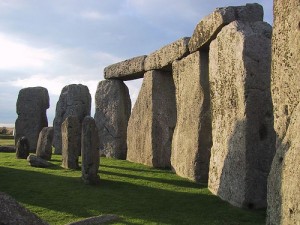 So you want an optmistic vision? How about a vision named after Voltaire’s absurdly optimistic hero?
So you want an optmistic vision? How about a vision named after Voltaire’s absurdly optimistic hero?
Publishing “Candide’s Garden” in Spielgel Online, Wolfram Eilenberg, who teaches international studies at Indiana University, advances this bracing hypothesis:
Anyone who now wants to talk about the future of Europe must first grasp the fact that we are — at this moment — experiencing a European utopia that has been cultivated for millennia.
The dogma-free, democratic marketplace of ideas, for which Socrates gave his life in Athens, is today a communicative reality in which hundreds of millions of citizens are actively taking part.
Eilenberger, who it turns out is not Dr. Pangloss after all, warns of big changes ahead, but he believes the European Union is well-positioned to weather them. We are entering an age of instant information accompanied by a scarcity of fuel, food, and water.
Put simply, the world will become bigger again.
… Instead of a globalized world economy that crosses continental barriers with ease, we will see continental autarchic zones being formed that will be shaped by the military defense of the basic resources available in each zone. We will thus see the logic of imperial expansion replaced by an aspiration to autarchic inclusion (already the EU strategy). The internal market of each zone will reassume economic primacy. This process does not have to end in war. It could well take an ordered course and lead to a multipolar equilibrium, the stability of which — like that of the Cold War — is guaranteed by an awareness of what military options are not available.
OK, that is sounding a good deal less optimistic. “Does not have to end in war” could mean “may well end that way.” But Eilenberger believes the EU is well positioned to weather these changes:
In cultural terms, Europe is equipped with a plurality of languages that lends itself to innovation as well as a global lingua franca: English (though by 2030 Spanish will be the European Union’s second main language). It is not burdened by any politically effective fundamentalisms, and Europe’s communications and transportation infrastructure leads the world. The thesis of a relative optimum also holds in demographic terms.
As for the USA – well, it’s up to those of us who live there, and our willingness to adapt.
An entire way of life, including the country’s suburban landscapes, will have to be fundamentally restructured. Today it is estimated that this inevitable process of economic and infrastructural renewal — one that will certainly also present new opportunities — will take at least twenty years to complete and, as is already becoming evident, will follow the process of reorientation to internal markets characteristic of autarchic zones. Furthermore, the already irreversible linguistic and cultural Hispanicization of its southern regions means that the United States will face greater integration challenges than will Europe with its smaller Muslim minorities.
Put in more positive terms, the way the United States develops will depend crucially on its readiness to consciously Hispanicize itself and — together with Brazil — to see itself in the long term as the strongest link within a pan-American community.
Which underlines the need to improve our discourse. Europeans, you should hear what our Confederate Party says about you, not to mention about people who speak Spanish. (Oops, is calling Republicans mean names the best way to improve our discourse? Self-criticism to follow. Could just be the reaction of an American with Euro-envy.)
I have no idea whether Eilenberger is right, but it’s a well-thought-out, wide-screen argument that he lays out. We need more of that in science fiction, too.
[Image: JasonRogersFooDogGiraffeBee]
 When I visited Eastern Europe about a decade ago, I was shocked at how much outspoken prejudice there was against the Gypsies. And I was shocked today to read in the
When I visited Eastern Europe about a decade ago, I was shocked at how much outspoken prejudice there was against the Gypsies. And I was shocked today to read in the  With France assuming the (rotating) presidency of the European Union, the BBC
With France assuming the (rotating) presidency of the European Union, the BBC  It seems to be the custom for new Futurismic posters to introduce themselves. I don’t see race, sex, age, residence, politics, or preferences. But people tell me I’m a 53-year-old white guy who lives in Arizona, leans to the left, and likes fiction, history, journalism, science,
It seems to be the custom for new Futurismic posters to introduce themselves. I don’t see race, sex, age, residence, politics, or preferences. But people tell me I’m a 53-year-old white guy who lives in Arizona, leans to the left, and likes fiction, history, journalism, science, 